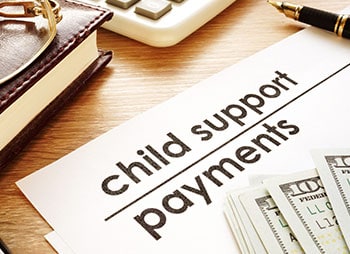
This article is from the Office of Child Support Enforcement (OCSE), an Office of the Administration for Children and Families.
Please note that this article is not legal advice and should be used for informational purposes only.
A lot of parents wonder about how the Treasury intercepts their checks. If you have past due child support payments, then this article is for you.
State child support agencies submit (certify), through OCSE to the Department of Treasury, the names, Social Security numbers, and amounts of past-due support of people who are behind in their payments.
A noncustodial parent whose support debt meets the criteria for Federal Offset or Passport Denial will receive a Pre-Offset Notice that explains the process and shows the amount of past-due support owed at the time of the notice. The Pre-Offset Notice includes information about Federal Tax Refund Offset, Administrative Offset, Passport Denial, and actions the child support agency may take to enforce a support obligation. It also includes information about how to contest the debt amount.
The actual amount that Treasury deducts from the tax refund may differ from the amount on the Pre-Offset Notice based on updated activity on the support obligation. The state updates the debt amount regularly, but may not issue a new notice each time the debt amount changes.
When Treasury processes tax refunds, it identifies those who owe past-due support and intercepts all or part of the tax refund. Treasury forwards the intercepted or offset funds through OCSE to the state child support agency to pay the past-due support.
At the time of the Federal Tax Refund Offset, Treasury’s Bureau of the Fiscal Service mails a Notice of Offset to the noncustodial parent stating that all or part of their federal tax refund has been intercepted because of the support debt. The notice explains to contact the local child support agency for further information.
The state that submitted the case typically receives money from a tax refund offset within two to three weeks. If the tax refund offset is from a jointly filed tax return, the state may hold the money for up to six months before disbursing.
One more thing, the deadline for filing taxes has changed. The deadlines to FILE and PAY federal income taxes are extended to July 15, 2020.
Also, IRS is offering coronavirus relief to taxpayers.
If you have questions, then let’s talk. Call (832) 937-4039 to schedule your consultation.
Get your questions answered -
Request a phone consultation now!
(832) 937-4039